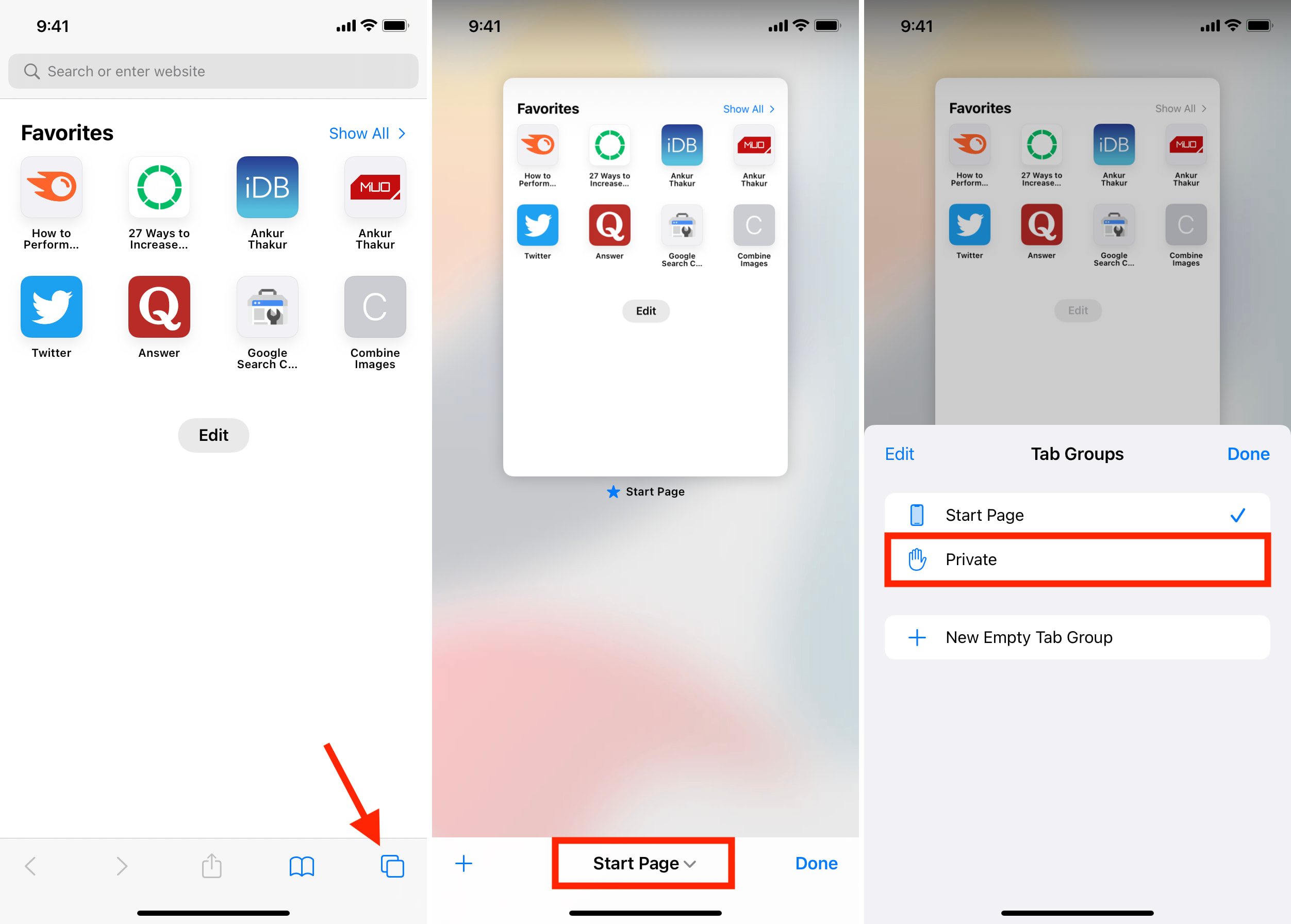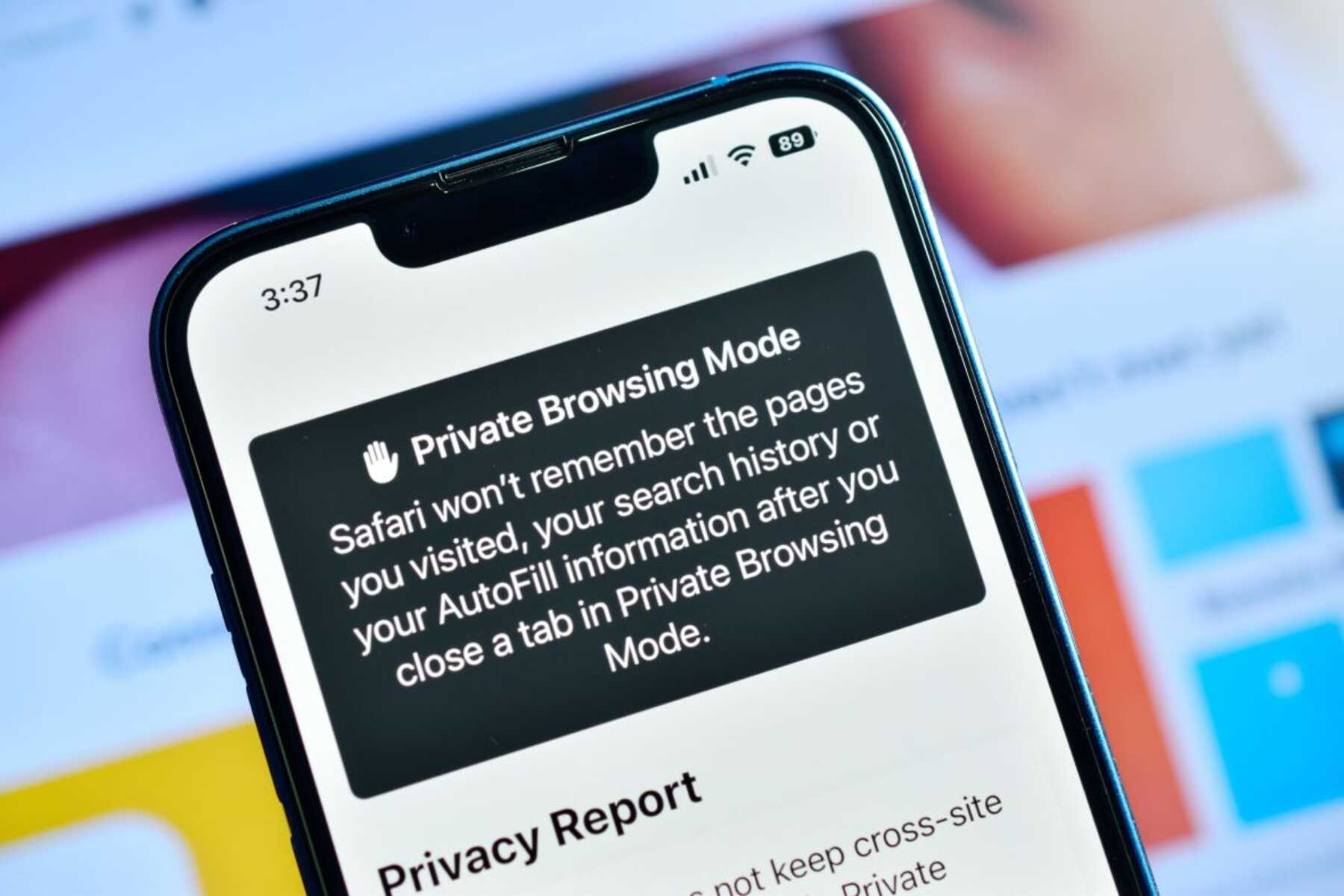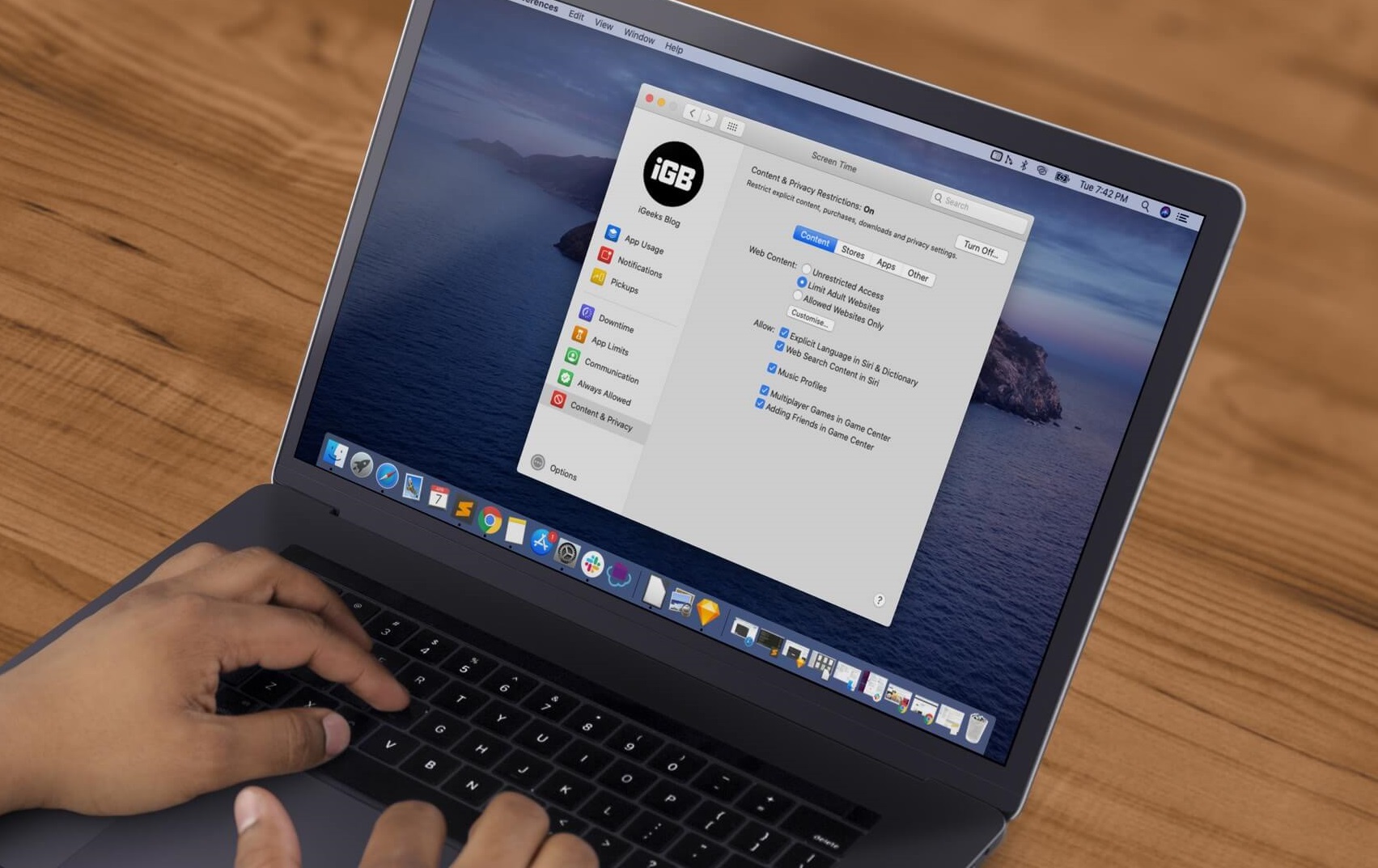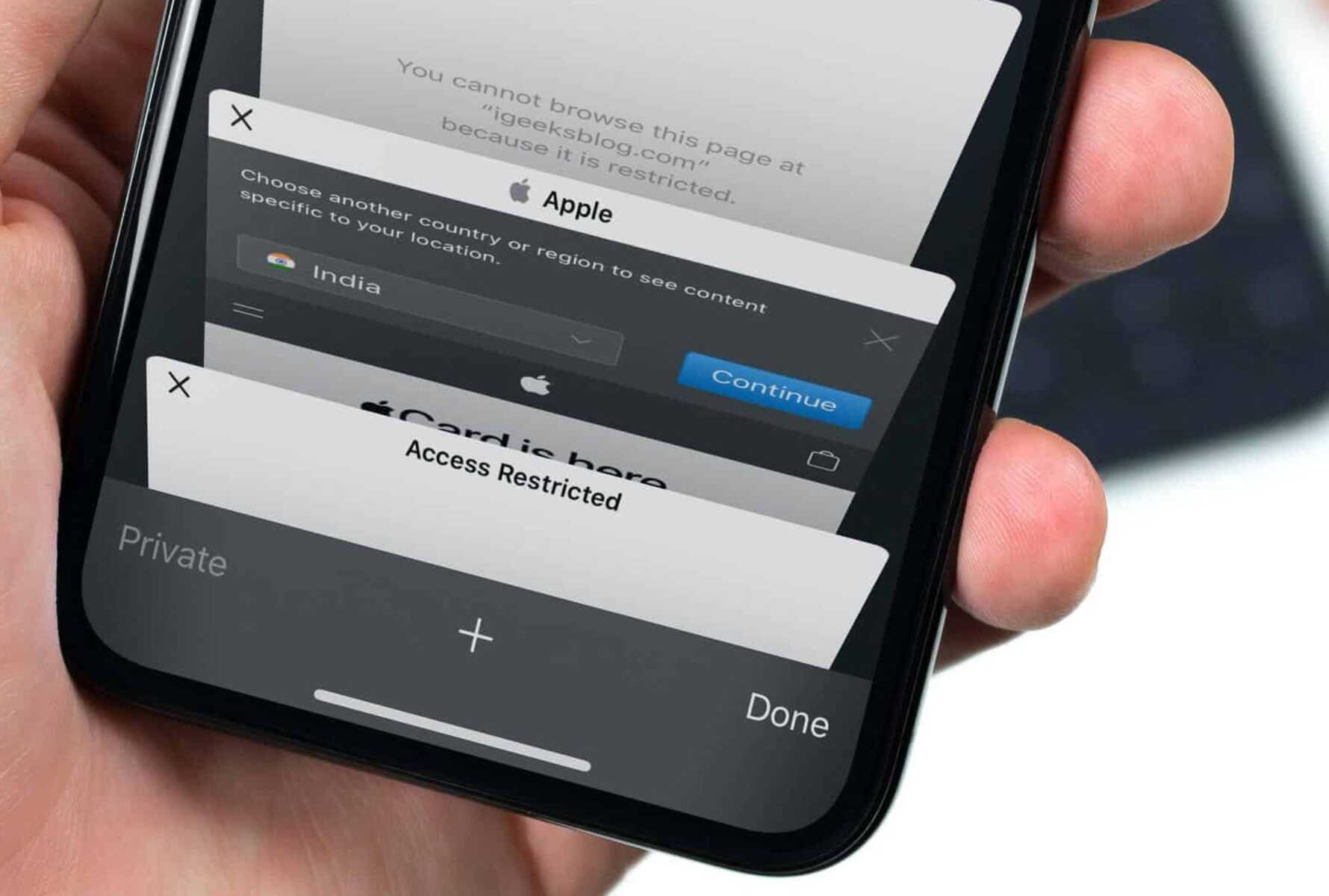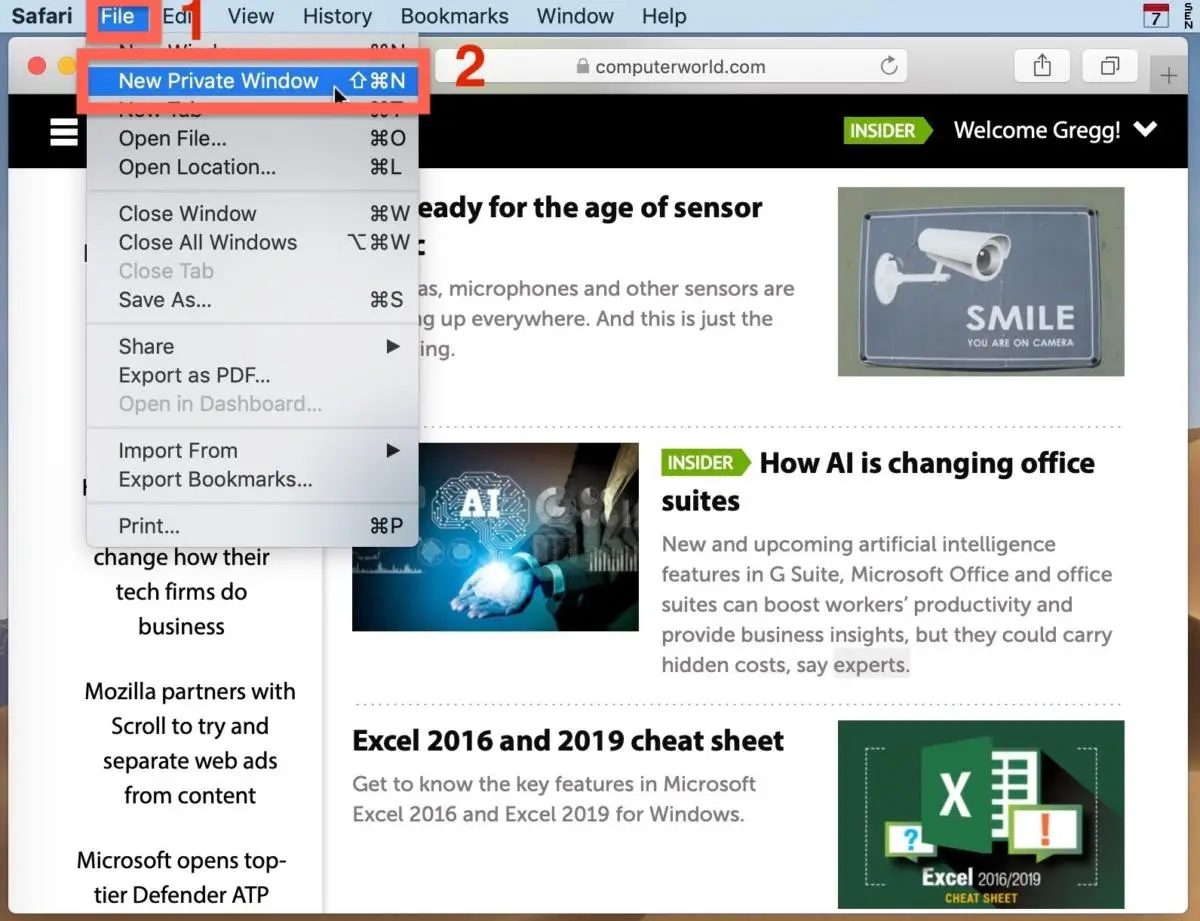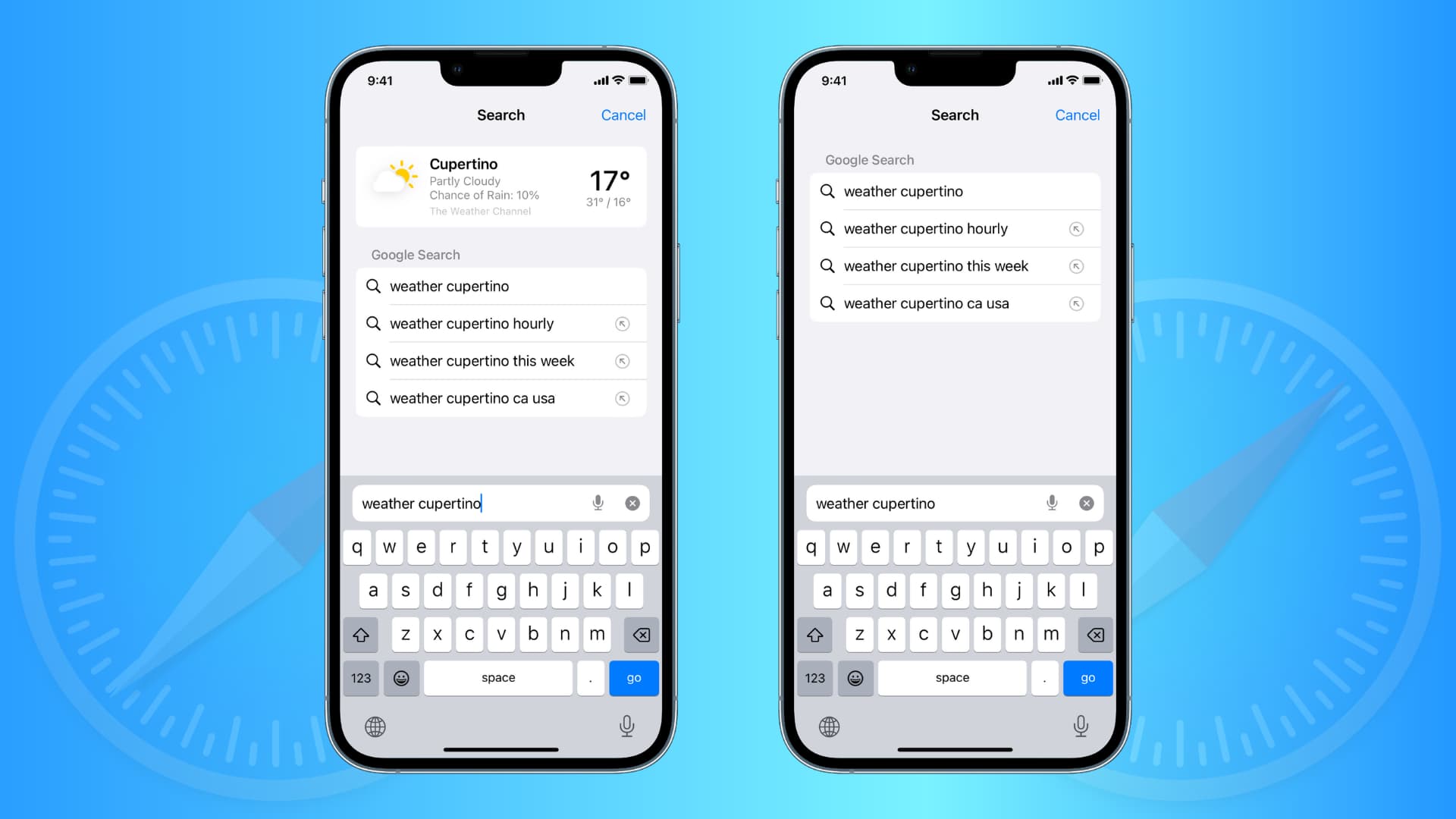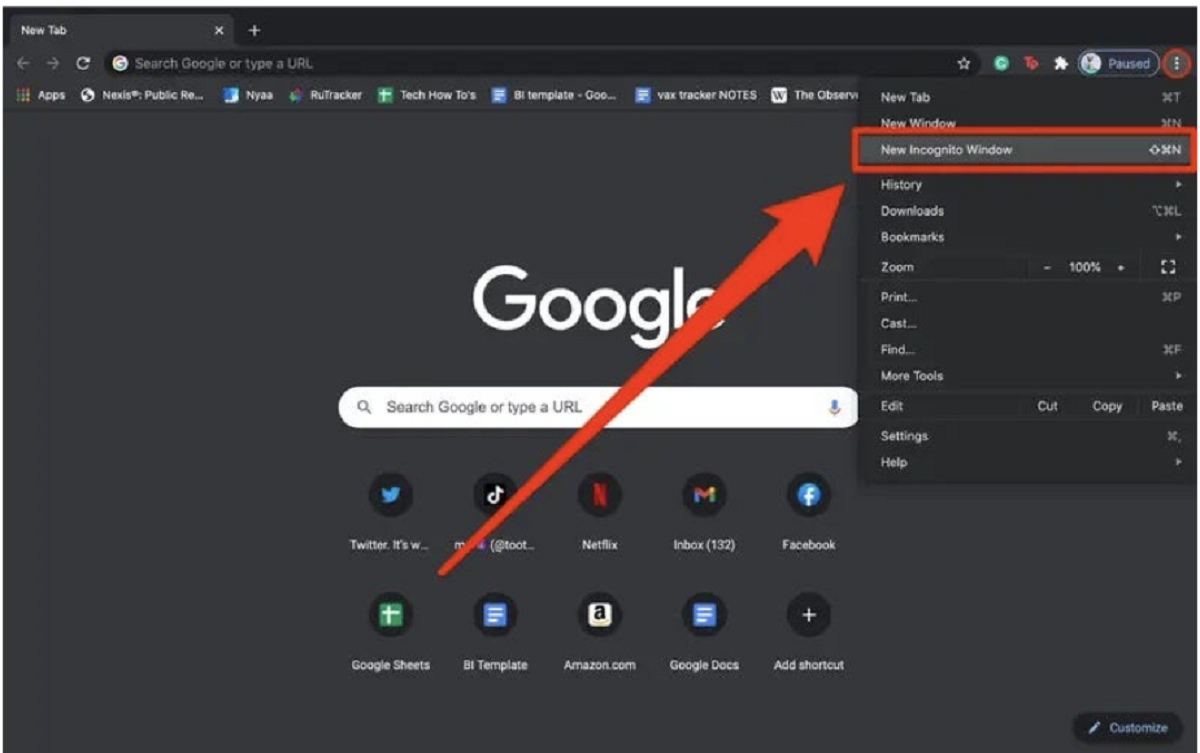Introduction
When it comes to browsing the web, privacy and security are paramount. In today's digital age, where online activities are constantly tracked and monitored, it's essential to have tools that help safeguard our personal information. This is where private browsing mode comes into play. Safari, the default web browser for Apple devices, offers a feature known as Private Mode, designed to provide users with a more secure and discreet online experience.
Private Mode, also commonly referred to as "Incognito Mode" in other browsers, allows users to browse the web without leaving a trail of their online activities. It's like wearing an invisibility cloak while surfing the internet. By enabling Private Mode, Safari ensures that your browsing history, search history, and cookies are not stored on your device. This means that once you exit Private Mode, all traces of your online session are effectively erased, leaving no digital footprint behind.
In this article, we'll delve into the intricacies of Private Mode on Safari, exploring how to enable it, what happens when it's active, the benefits it offers, and its limitations. Whether you're concerned about maintaining your privacy, sharing a device with others, or simply want to prevent websites from tracking your online behavior, understanding the ins and outs of Private Mode can empower you to make informed decisions about your browsing habits. So, let's embark on a journey to uncover the mysteries of Private Mode and discover how it can enhance your browsing experience.
How to Enable Private Mode on Safari
Enabling Private Mode on Safari is a straightforward process that can be accomplished in just a few simple steps. Whether you're using a Mac, iPhone, or iPad, the method for activating Private Mode remains consistent across all devices. Here's a step-by-step guide to help you get started:
On Mac:
-
Open Safari: Launch the Safari browser on your Mac. You can do this by clicking on the Safari icon in the dock or by searching for Safari using Spotlight.
-
Access Private Mode: Once Safari is open, navigate to the top menu bar and click on "File." A drop-down menu will appear. From this menu, select "New Private Window." Alternatively, you can use the keyboard shortcut "Command + Shift + N" to open a new Private Window directly.
-
Start Browsing: After selecting "New Private Window," a new Safari window will open with a dark background, indicating that you are now in Private Mode. You can begin browsing the web with the assurance that your browsing history and other data will not be stored once you close the Private Window.
On iPhone or iPad:
-
Launch Safari: Locate the Safari app on your iPhone or iPad's home screen and tap to open it.
-
Activate Private Mode: Tap the tab icon in the lower-right corner of the Safari interface. This will reveal your open tabs. Next, tap "Private" in the lower-left corner to switch to Private Mode. The interface will change to a dark theme, indicating that Private Mode is now active.
-
Commence Browsing: With Private Mode enabled, you can now browse the web on your iOS device without worrying about your browsing history, cookies, or other data being retained after you exit Private Mode.
By following these simple steps, you can seamlessly enable Private Mode on Safari, ensuring a more discreet and secure browsing experience. Whether you're using a Mac, iPhone, or iPad, the ability to switch to Private Mode empowers you to take control of your online privacy and security with ease.
What Happens in Private Mode
When you activate Private Mode on Safari, a series of privacy-enhancing measures come into play, creating a distinct browsing environment that differs from regular browsing sessions. Here's a closer look at what unfolds when Private Mode is active:
Browsing History Is Not Saved
One of the fundamental aspects of Private Mode is that Safari does not retain your browsing history. This means that the websites you visit, the pages you navigate to, and the searches you conduct during a Private Mode session are not stored in your browsing history. Consequently, once you exit Private Mode, there will be no record of the websites you visited during that session.
Cookies Are Temporary
In Private Mode, Safari treats cookies differently compared to regular browsing. While cookies are typically used to store information about your browsing habits and preferences, they function differently in Private Mode. Any cookies generated during a Private Mode session are temporary and are discarded once the Private Window is closed. This ensures that your online activities during Private Mode remain isolated from your regular browsing data.
Autofill and Form Data Are Disabled
Private Mode also disables the autofill feature and prevents Safari from storing form data. This means that any information you enter into web forms, such as login credentials, personal details, or payment information, will not be saved after you exit Private Mode. By doing so, Private Mode helps protect sensitive information from being stored on the device.
No Tracking by Websites
Websites typically utilize various tracking mechanisms to monitor user behavior and gather data for analytics and advertising purposes. However, when you're in Private Mode, Safari restricts these tracking methods. This means that websites are unable to track your online activities, preventing them from collecting data about your browsing behavior during the Private Mode session.
Separate from Regular Browsing
It's important to note that Private Mode operates independently from your regular browsing sessions. Any tabs or windows opened in Private Mode are distinct from your non-private browsing activities. This isolation ensures that the data generated during a Private Mode session does not intertwine with your standard browsing data, maintaining a clear separation between the two modes.
By understanding what happens in Private Mode on Safari, you can gain insight into the protective measures that come into effect when you choose to browse privately. Whether you're concerned about maintaining confidentiality, preventing websites from tracking your online behavior, or simply keeping your browsing history discreet, Private Mode offers a secure and secluded online experience.
Benefits of Using Private Mode
Private Mode on Safari offers a myriad of benefits that cater to users' privacy, security, and browsing convenience. By embracing the protective cloak of Private Mode, individuals can unlock a range of advantages that enhance their online experience. Let's delve into the compelling benefits of utilizing Private Mode on Safari:
1. Enhanced Privacy Protection
When you engage Private Mode, Safari refrains from storing your browsing history, search history, and cookies. This means that your online activities remain confidential, and once you exit Private Mode, there is no trace of the websites you visited or the searches you conducted. This heightened level of privacy protection is particularly valuable when using shared devices or accessing sensitive information, as it ensures that your browsing habits remain discreet and isolated.
2. Secured Personal Information
Private Mode disables the autofill feature and prevents the retention of form data, safeguarding sensitive information such as login credentials, personal details, and payment information. By doing so, it shields users from the risk of their personal data being inadvertently stored on the device. This is especially beneficial when making online transactions or accessing accounts on public or shared devices, as it mitigates the potential exposure of personal information.
3. Prevents Targeted Advertising
Websites often employ tracking mechanisms to monitor user behavior and tailor personalized advertisements. However, Private Mode disrupts these tracking methods, preventing websites from collecting data about users' browsing behavior during a Private Mode session. As a result, users can enjoy a respite from targeted advertising and experience a more neutralized online environment, free from the influence of personalized ad targeting.
4. Isolated Browsing Environment
Private Mode operates independently from regular browsing sessions, ensuring that the data generated during a Private Mode session remains separate from non-private browsing activities. This isolation provides users with a distinct and controlled browsing environment, allowing them to engage in online activities without the concern of their private data intertwining with their standard browsing data.
5. Temporary Cookies
In Private Mode, Safari treats cookies as temporary, discarding them once the Private Window is closed. This temporary nature of cookies in Private Mode prevents the accumulation of long-term browsing data and ensures that users' online activities during Private Mode remain isolated from their regular browsing data.
By leveraging the benefits of Private Mode on Safari, users can fortify their online privacy, protect their personal information, and enjoy a more secluded and secure browsing experience. Whether it's evading targeted advertising, safeguarding sensitive data, or maintaining a confidential browsing history, Private Mode empowers users to navigate the web with enhanced privacy and peace of mind.
Limitations of Private Mode
While Private Mode on Safari offers valuable privacy and security features, it's important to acknowledge its limitations. Understanding these constraints can provide a balanced perspective on the capabilities of Private Mode and help users make informed decisions about their browsing habits.
1. Local Device Activity
Private Mode primarily focuses on preventing the storage of browsing history, cookies, and other data on the local device. However, it's essential to recognize that Private Mode does not shield users from potential monitoring or tracking by network administrators, internet service providers, or other entities external to the device. Therefore, while Private Mode can enhance privacy on the local device, it does not guarantee anonymity or protection from external surveillance.
2. Limited Protection from Malware and Phishing
Private Mode does not offer comprehensive protection against malware, phishing attempts, or other online threats. While it may prevent certain types of tracking and data retention, it does not actively scan for or block malicious websites or deceptive content. Users should remain vigilant and rely on additional security measures, such as antivirus software and safe browsing practices, to mitigate the risks associated with online threats.
3. Incomplete Anonymity
Private Mode does not render users completely anonymous while browsing the web. While it prevents the storage of local browsing history, cookies, and form data, it does not conceal the user's IP address or prevent websites from recognizing repeat visits. As a result, users should be mindful that Private Mode does not provide absolute anonymity and should exercise caution when accessing sensitive or confidential content.
4. Limited Impact on Website Tracking
While Private Mode restricts websites from tracking user behavior within the Private Mode session, it does not eliminate the ability of websites to track users across different browsing sessions or devices. Persistent identifiers, such as IP addresses and device fingerprints, can still be utilized by websites to track user activity beyond the scope of Private Mode. Therefore, users should be aware that Private Mode's impact on website tracking is confined to the duration of the Private Mode session.
By acknowledging the limitations of Private Mode, users can gain a comprehensive understanding of its capabilities and make informed choices regarding their online privacy and security. While Private Mode offers valuable protective measures, it's essential to complement its usage with a holistic approach to online security and privacy.
Frequently Asked Questions about Private Mode
What is the purpose of Private Mode in Safari?
Private Mode in Safari serves as a privacy-enhancing feature that allows users to browse the web without leaving a trail of their online activities. By activating Private Mode, Safari ensures that browsing history, search history, and cookies are not stored on the device, providing a more discreet and secure online experience.
Does Private Mode make me completely anonymous?
While Private Mode prevents the storage of local browsing history, cookies, and form data, it does not render users completely anonymous. It does not conceal the user's IP address or prevent websites from recognizing repeat visits. Therefore, users should exercise caution when accessing sensitive or confidential content, as Private Mode does not provide absolute anonymity.
Can I use Private Mode to protect my personal information on shared devices?
Yes, Private Mode is particularly useful for safeguarding personal information on shared devices. By disabling the storage of browsing history, search history, and cookies, Private Mode ensures that your online activities remain confidential and isolated from other users of the same device. It also prevents the retention of form data and disables the autofill feature, enhancing the security of personal information.
Does Private Mode protect me from online threats such as malware and phishing?
While Private Mode offers privacy and data isolation features, it does not provide comprehensive protection against malware and phishing attempts. Users should remain vigilant and employ additional security measures, such as antivirus software and safe browsing practices, to mitigate the risks associated with online threats.
Can websites track my online behavior when I'm in Private Mode?
Private Mode restricts websites from tracking user behavior within the Private Mode session. However, it does not eliminate the ability of websites to track users across different browsing sessions or devices using persistent identifiers such as IP addresses and device fingerprints. Therefore, users should be aware that Private Mode's impact on website tracking is confined to the duration of the Private Mode session.
Is Private Mode available on all devices that support Safari?
Yes, Private Mode is available on all devices that support Safari, including Mac, iPhone, and iPad. The method for enabling Private Mode remains consistent across these devices, providing users with a seamless and uniform browsing experience across their Apple devices.
Can I open regular and Private Mode windows simultaneously in Safari?
Yes, Safari allows users to open regular browsing windows alongside Private Mode windows. This flexibility enables users to seamlessly switch between regular and Private Mode browsing sessions based on their privacy and security preferences.
How can I tell if Private Mode is active in Safari?
In Safari, a distinct visual indicator, such as a dark-themed interface, is used to signify that Private Mode is active. When Private Mode is enabled, the browser interface adopts a different color scheme, making it easy for users to identify when they are browsing privately.
Can I customize the settings or preferences of Private Mode in Safari?
Private Mode in Safari is designed to operate with default privacy and security settings. While users cannot customize the specific behaviors of Private Mode, they can complement its usage with additional privacy and security measures, such as content blockers and secure browsing practices, to further enhance their online protection.
Does Private Mode prevent websites from tracking my location?
Private Mode does not specifically prevent websites from tracking a user's location. Location tracking is typically governed by separate browser and device settings. Users concerned about location privacy should review and adjust their location sharing preferences within their device and browser settings, in addition to utilizing Private Mode for enhanced privacy protection.
By addressing these frequently asked questions about Private Mode, users can gain a comprehensive understanding of its functionalities, limitations, and implications for online privacy and security. This knowledge empowers users to make informed decisions about leveraging Private Mode to enhance their browsing experience while maintaining control over their personal information and online activities.







